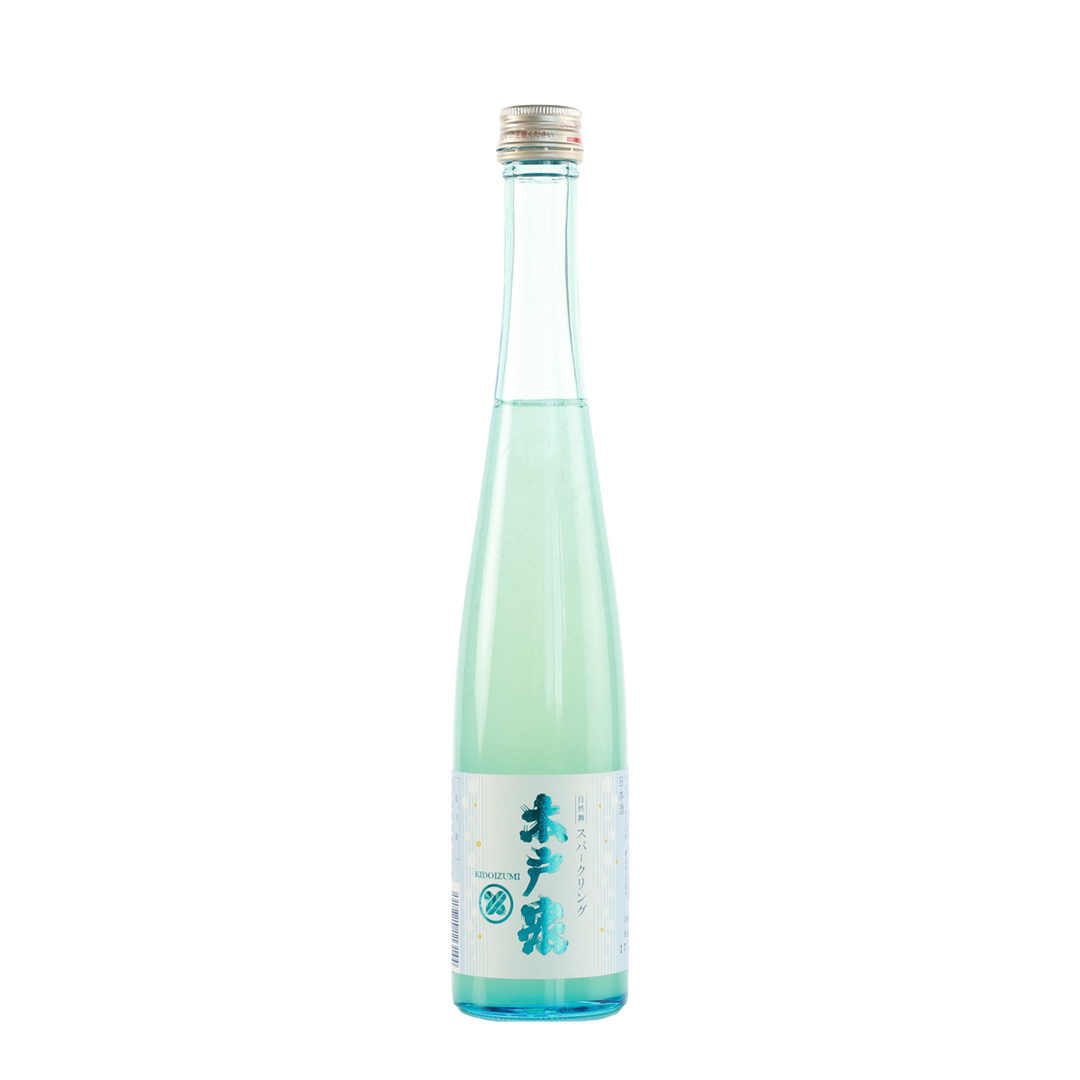
Kidoizumi Junmai Yamahai Namagenshu "Shizenmai Sparkling" (360ml)
- In stock, ready to ship
Dry, lean, brisk and acidic: a shockingly austere and champagne-like sparkling sake, particularly surprising from Kidoizumi, masters of full-bodied, sweet and tart aged brews. At 14% it also has the body that sparkling sake lacks, while reading as extra brut.
Notes of white grapefruit, Spring blossoms, green almond, osmanthus, white tea and floury pizza crust. The finish lingers, but it's pure salty minerality...and to me, there is very little fruit here. It's an incredibly pure and crystalline expression of sake. Stunning!
The sake is bottled in early spring, fermented thoroughly in the bottle, and then gently aged in ice-cold storage at -5°C. All of the rice used is naturally grown and lovingly grown by contracted farmers, friends of the brewery.
Kidoizumi, 木戸泉酒造
Location: Isumi City, Chiba Prefecture
Grade: Junmai Muroka Nama Genshu
Rice: Hanafubuki
Polish: 60%
Yeast: Wild yeast cultivated through hot yamahai method
ABV: 14%
Chiba prefecture lies between Tokyo Bay and the Pacific Ocean, a verdant area traditionally known for prolific farming. The Kuroshio (“black salt”) current flows around Chiba’s shores, which keeps it relatively warmer in winter and cooler in summer than neighboring Tokyo.
Kidoizumi was founded in 1879, and is currently run by the fifth generation owner-toji of the Shoji family, Hayato Shoji. It is the only brewery in Japan that uses the Hot-Yamahai method, developed by Hayato’s grandfather in the 1950s. In a traditional yamahai sake the starter of the sake is left exposed to the air for several days to naturally develop lactic acid, and needs cool temperatures to avoid getting contaminated by unwanted bacteria. Despite its location in relatively warm Chiba, Kidoizumi developed a method where large amounts of lactic acid producing bacteria are cultivated on the premises are added to a starter kept at very high temperature.
The result is a unique full bodied, multi-layered taste which is completely unique to their brewery. Their namazake (unpasteurized sake) has a unique combination of acidity and sweetness, complex floral notes and a rich mouthfeel. Because of the unique method of production, it is a very stable sake once opened. It pairs excellently with bold flavors and has a special magic with grilled meats.
In addition Kidoizumi are proud to use locally grown rice that meets their standards, embracing traditional growing techniques and banning the use of chemical fertilizers. They were one of the first pioneers for the organic movement in Japan, skirting the rules during the decades when the government controlled all rice sales and production methods. We like their rebellious spirit and are glad they applied it to sake making!

